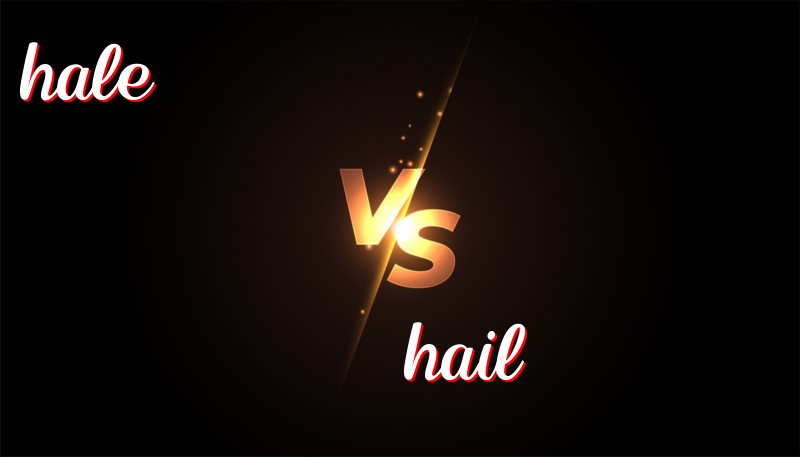Hale vs. Hail: Understanding the Difference
Hale vs. Hail
In English, “hale” and “hail” sound the same, but they mean different things. Let’s learn about these two words.
History
“Hale” comes from an old English word meaning “healthy or strong.” “Hail” comes from an old English word meaning “to call” or “to greet.”
How to Use Them
Hale: We use “hale” to talk about someone’s health. If someone is hale, they are strong and healthy.
Hail: We use “hail” in two ways. One is to talk about small pieces of ice falling from the sky. The other is to call or greet someone.
Trick to Remember the Difference
Remember: “Hale” with an “e” is about health. “Hail” with an “i” is about ice or calling someone.
Example Sentences
Hale:
- She looked hale and lively at her age.
- After the long trip, he was still hale and hearty.
- My grandfather is hale and strong at 80.
- The old man was hale and in good spirits.
- Even after the illness, she felt hale and well.
Hail:
- We heard the hail hitting the roof.
- The coach hailed the team for their hard work.
- They tried to hail a taxi in the rain.
- During the storm, hail fell from the sky.
- The crowd hailed the hero with cheers.
Summary
“Hale” means strong and healthy. “Hail” can mean ice from the sky or to call or greet. Remember: “e” for health in “hale,” and “i” for ice or calling in “hail.” Now you know how to use these words!

Leave a Reply
You must be logged in to post a comment.